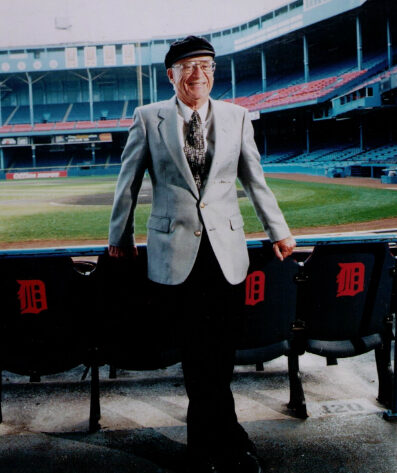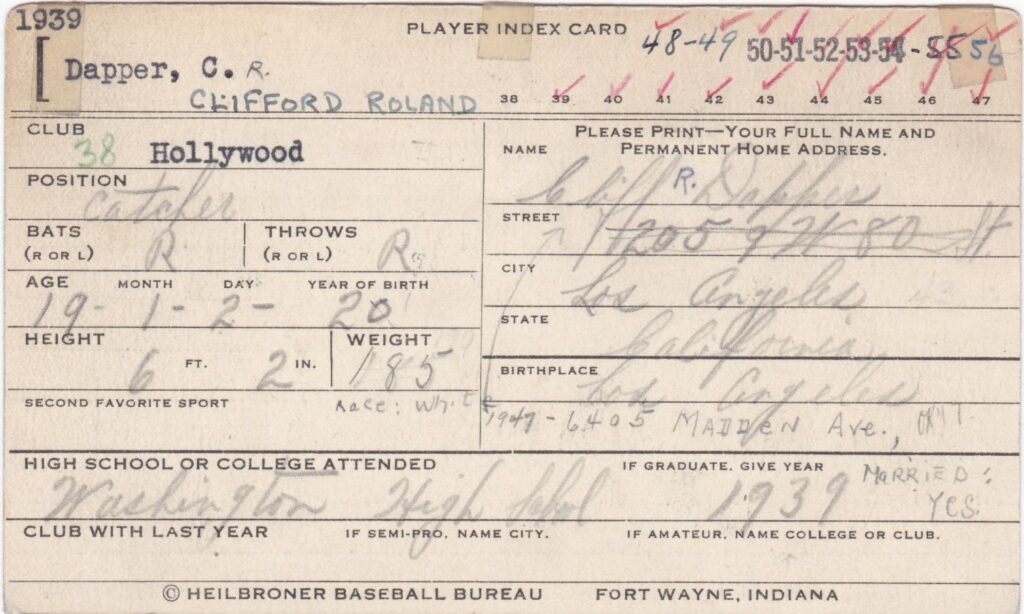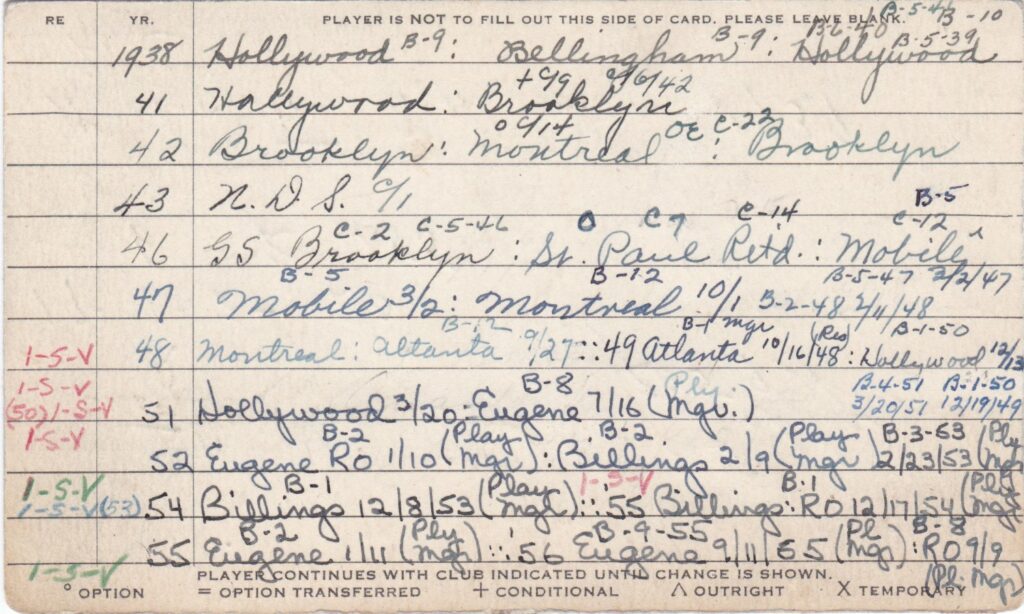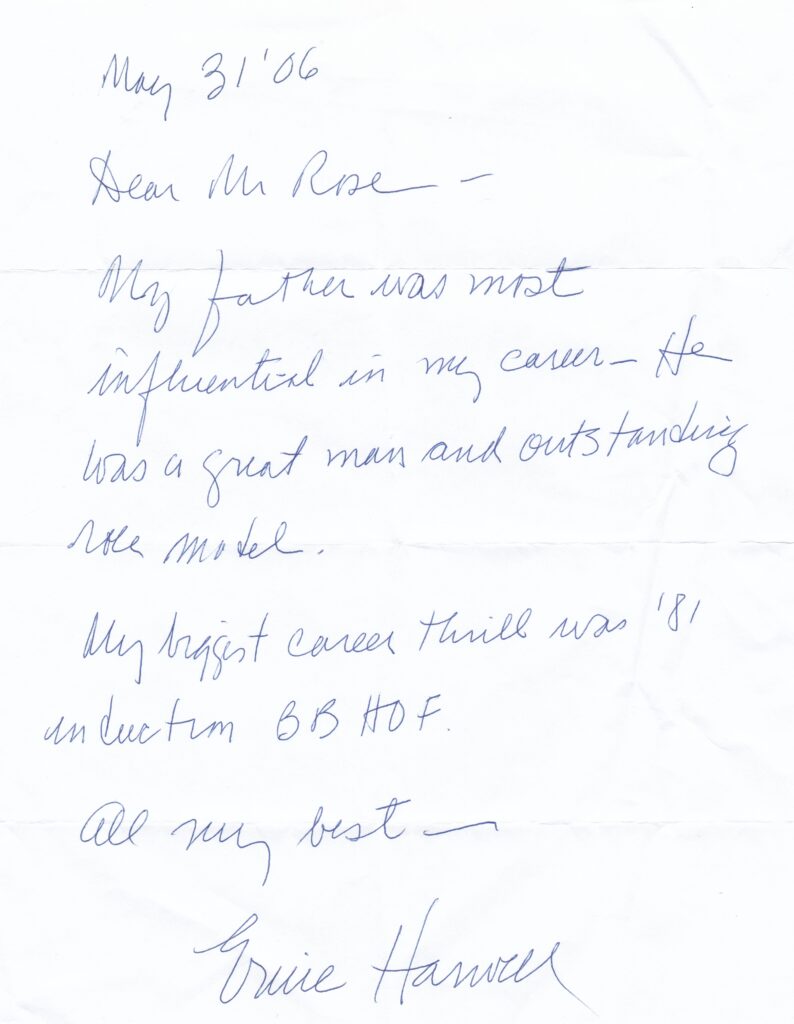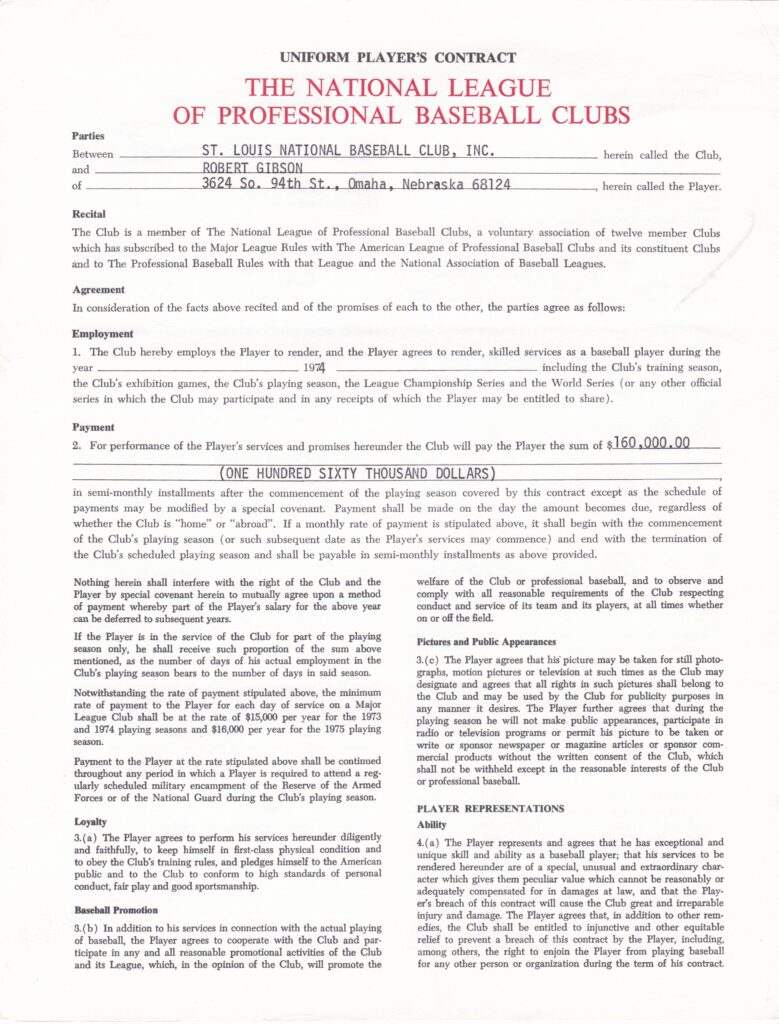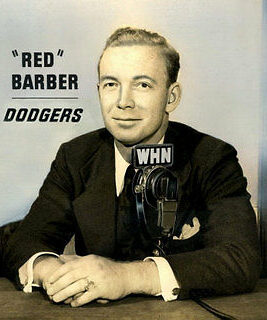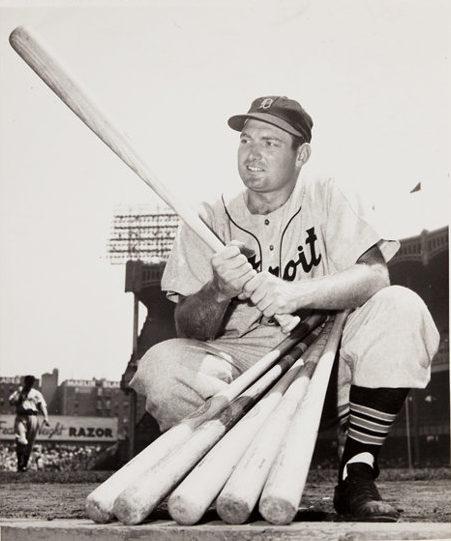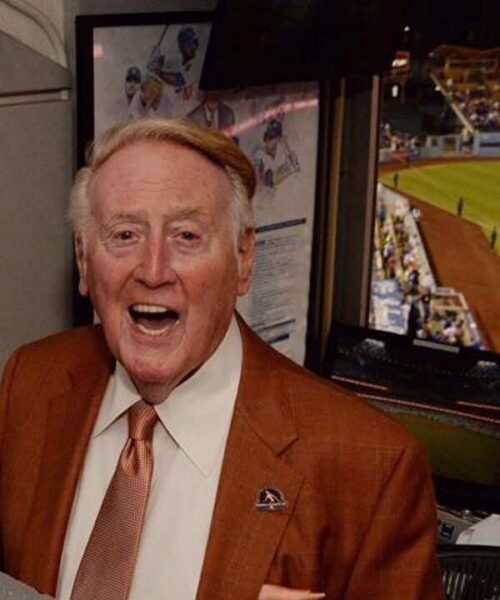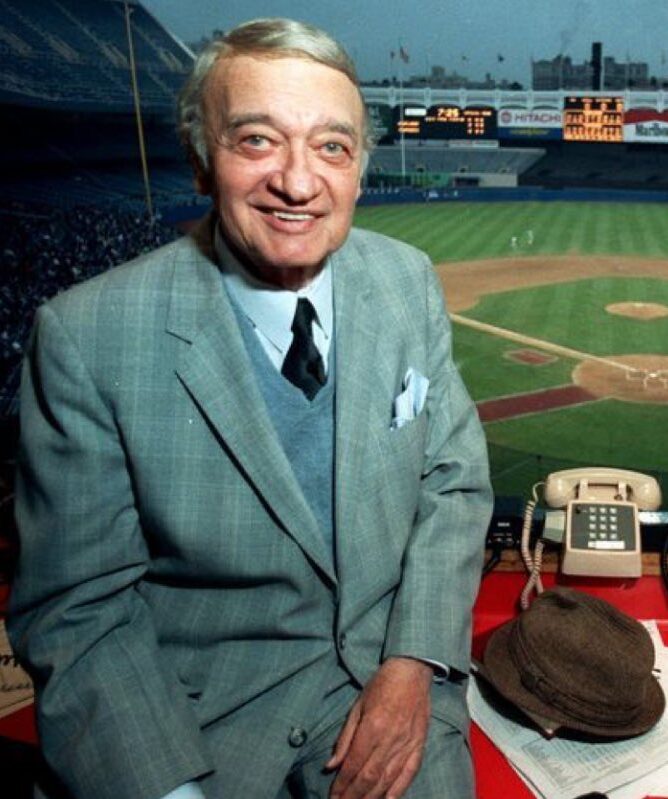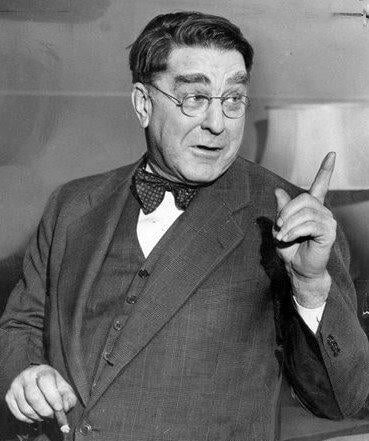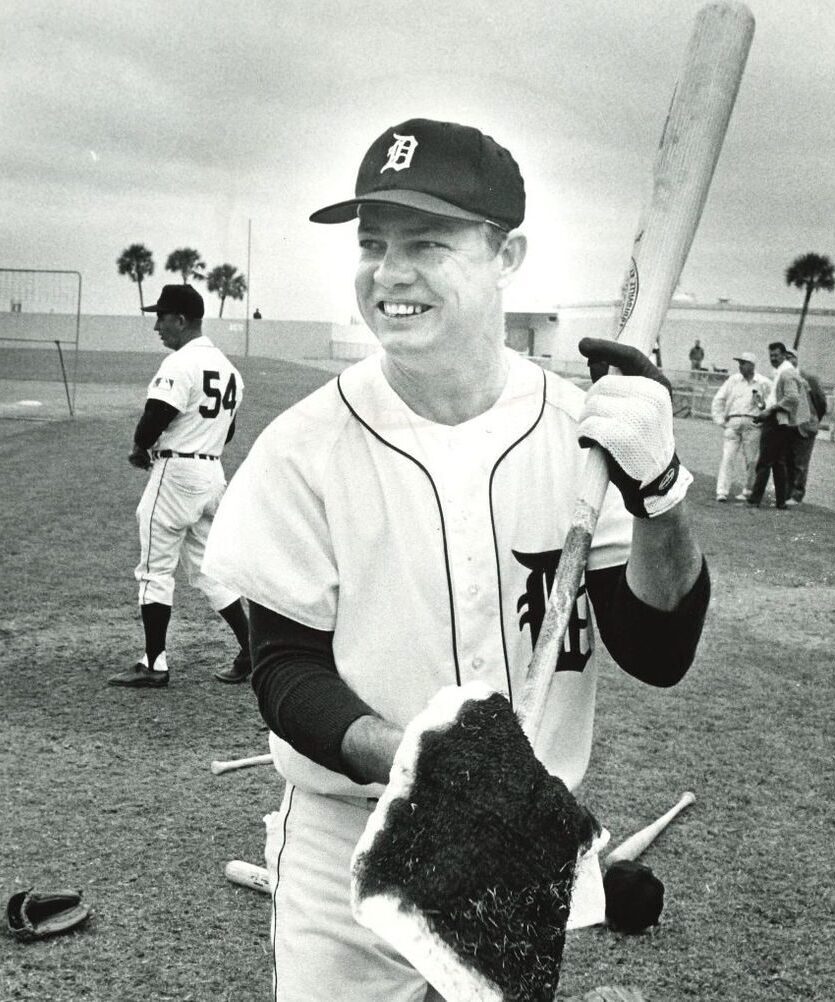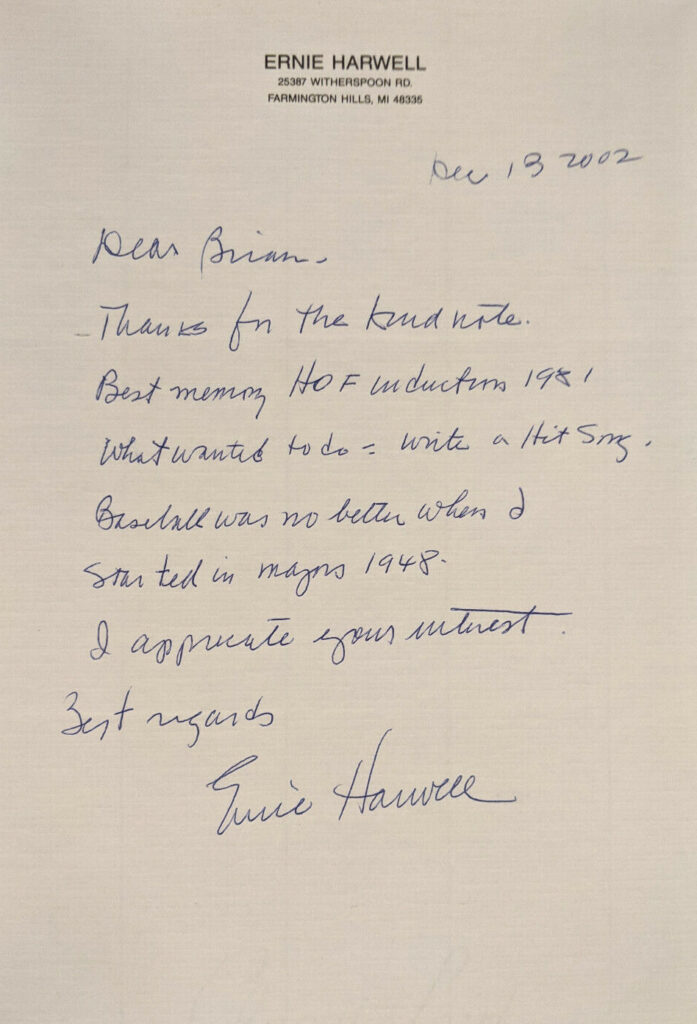
Ernie Harwell got his start announcing big league ball games in 1948 with the Dodgers. Brooklyn GM Branch Rickey brought him in when play-by-play man Red Barber left the club to recuperate from bleeding ulcers.
When Barber returned, Harwell remained. Their first game together in the booth was a memorable one as Dodger right-hander Rex Barney threw a no-hitter.
The Georgia native’s worked just two seasons in Brooklyn before moving across town to the New York Giants. In 1951 he called Bobby Thomson’s “Shot Heard ‘Round the World” for television viewers.
At that time TV games were not recorded. Russ Hodges’ radio call, “The Giants win the pennant! The Giants win the pennant!” lives today while Harwell’s call has vanished with time.
After the 1953 season, Harwell moved on to Baltimore to call Orioles games. There he built a friendship with aging star George Kell. As the Hall of Fame third baseman recovered from a beaning in 1957, Harwell invited him to do play-by-play innings.
Two years later Kell took the job as color man in Detroit. When the Tigers looked for a new announcer in 1960, Kell recommended his old friend Harwell. Ernie got the job and became a Detroit institution.
In the 60s Harwell called World Series games for NBC radio; by the 70s he became CBS’s main man for the American League Championship Series.
In 1973 Paul Carey joined him in the Tigers booth. Their partnership lasted nearly two decades. For many Michiganders, the duo formed the soundtrack of the summers.
In 1981 Harwell received baseball’s highest honor for its announcers, the Hall of Fame’s Ford C. Frick Award.
At the ceremony he remarked, “I know that this is an award that is supposed to be for my contribution to baseball. But let me say this: I have given a lot less to baseball than it’s given to me. And the greatest gift that I’ve received from baseball is the way that the people in the game have responded to me with their warmth and their friendship.”
In December of 1990, after 30 seasons in Detroit, Harwell was unceremoniously dumped by newly-hired team president Bo Shembechler. Tiger fans were appalled. His absence wasn’t long.
Mike Ilitch bought the Tigers in 1992 and re-hired Harwell for the ’93 season. Ernie stayed another decade before calling it quits for good in 2002 at age 84.
After his final game, Harwell said his goodbye.
“I have just finished my baseball broadcasting career. And it’s time to say goodbye, but I think goodbyes are sad and I’d much rather say hello.
“Hello to a new adventure. I’m not leaving, folks. I’ll still be with you, living my life in Michigan—my home state—surrounded by family and friends.
“And rather than goodbye, please allow me to say thank you. Thank you for letting me be part of your family. Thank you for taking me with you to that cottage up north, to the beach, the picnic, your work place and your back yard. Thank you for sneaking your transistor under the pillow as you grew up loving the Tigers.
“Now I might have been a small part of your life. But you’ve been a very large part of mine. And it’s my privilege and honor to share with you the greatest game of all.”
In the collection is this letter handwritten and signed by Ernie Harwell. He mentions his ” 1981 Hall of Fame induction” as his best memory and states that, “Baseball was no better when I started in 1948”. The correspondence is written on his personal letterhead.
